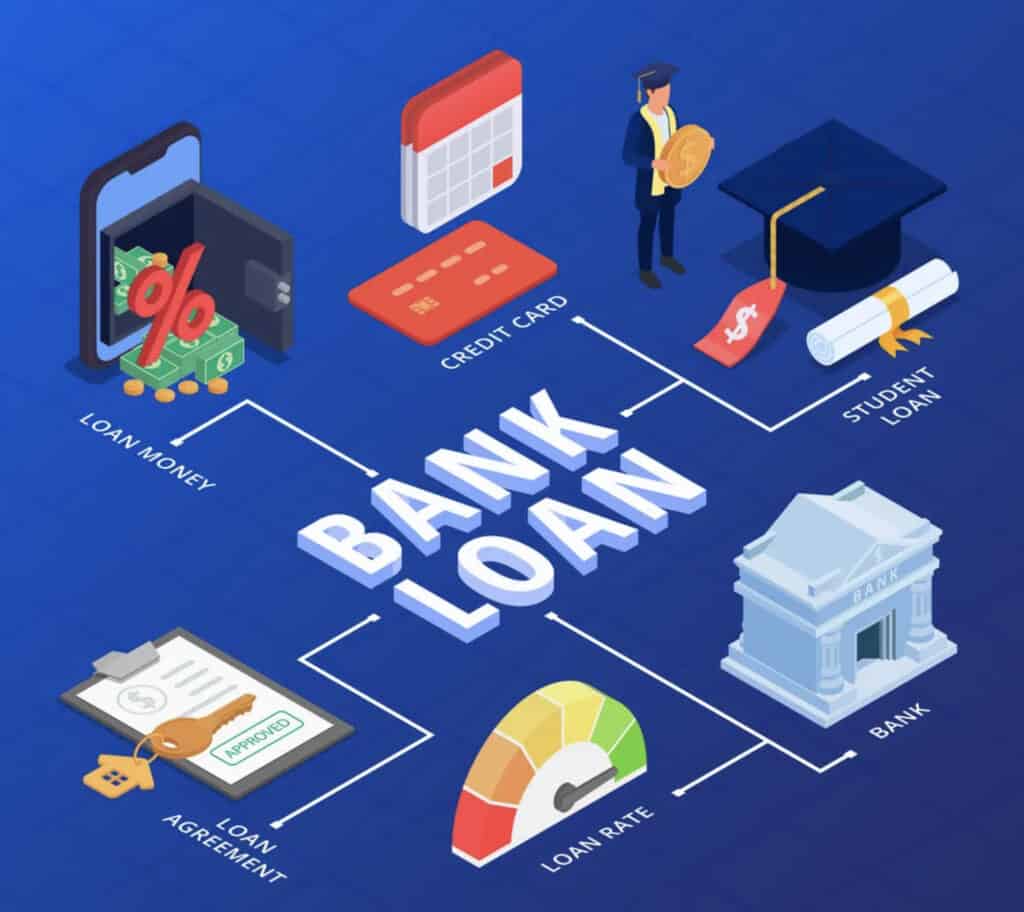How to oppose a suit lodged by a bank in Bangladesh
If you have been served with a lawsuit from a bank in Bangladesh, you will need to respond to the lawsuit in order to present your side of the case. One way to respond is to file an “answer” to the lawsuit.
This is a document in which you can raise any defenses or arguments that you have to the bank’s claims. You will need to follow the procedures set forth by the court in order to properly file your answer.
You should also consider seeking the advice of a lawyer to help you understand your legal rights and options. A lawyer can help you prepare a strong defense to the bank’s claims and represent you in court.
In Bangladesh, a default judgment is a judgment entered by the court in favor of the plaintiff (in this case, the bank) if the defendant (you) fails to properly respond to the lawsuit or appear in court for a hearing.
This can happen if you do not file an answer to the lawsuit within the time required by the court, or if you fail to attend a scheduled court hearing.
If a default judgment is entered against you, it means that the court has granted the bank’s requested relief without considering your defenses or arguments. This can have serious consequences, such as the bank being able to garnish your wages or seize your assets to satisfy the judgment.
To avoid a default judgment, it is important to respond to the lawsuit promptly and to follow the procedures set forth by the court.

It is important to act promptly in responding to a lawsuit, as failing to do so can result in a default judgment being entered against you. This means that the court may grant the bank’s requested relief without considering your defenses or arguments.
Here are the steps you can take to oppose a lawsuit filed by a bank in Bangladesh:
- Review the lawsuit and make sure you understand the bank’s claims and the relief it is seeking.
- Consider seeking the advice of a lawyer. A top lawyer can help you understand your legal rights and options, and can represent you in court.
- File an “answer” to the lawsuit. This is a document in which you can raise any defenses or arguments that you have to the bank’s claims. You will need to follow the procedures set forth by the court in order to properly file your answer.
- Prepare your defense. You will need to present evidence and arguments to support your defenses to the bank’s claims. This may include gathering documents, witness statements, and other types of evidence.
- Attend any court hearings or proceedings. You will need to attend any court hearings or proceedings related to the lawsuit. This is your opportunity to present your defense to the court and to challenge the bank’s evidence and arguments.
- Consider negotiating a settlement. If you are unable to successfully defend against the bank’s claims, you may want to consider negotiating a settlement. This can involve agreeing to pay the bank a certain amount of money in order to resolve the case.
It is important to act promptly in responding to a lawsuit and to follow the procedures set forth by the court. Failing to do so can result in a default judgment being entered against you.
Steps of a Money Loan (Artha Rin) Court Suit in Bangladesh:
| Procedure | Description |
|---|---|
| Auction before filing suit | In certain cases, the lender may be required to hold an auction of the borrower’s assets before filing a lawsuit to recover the unpaid balance of the loan. This is governed by section 12 of the Money Loan Court Act, 1990. |
| Special time limit for filing suit | The lender may have a special time limit for filing a lawsuit to recover the unpaid balance of the loan. This is governed by section 46 of the Money Loan Court Act, 1990. |
| Limitation of claim | The lender may only be able to recover the unpaid balance of the loan up to a certain amount. This is governed by section 47 of the Money Loan Court Act, 1990. |
| Interest Calculation | The lender may be entitled to recover interest on the unpaid balance of the loan. The calculation of interest may be governed by section 50 of the Money Loan Court Act, 1990. |
| Plaint | The lender will file a complaint with the court, alleging that the borrower has defaulted on the loan and seeking to recover the unpaid balance. This is known as a “plaint” and is governed by section 8 of the Money Loan Court Act, 1990. |
| Summons /SR (Summons Return) | The borrower will be served with a summons, which will inform them of the lawsuit and the date of the first court hearing. The borrower may also be required to file a “summons return” acknowledging receipt of the summons. This is governed by section 7 of the Money Loan Court Act, 1990. |
| Written statement (WS) | The borrower may be required to file a written statement setting forth their defenses or arguments to the lender’s claims. This is known as a “written statement” and is governed by sections 9 and 10 of the Money Loan Court Act, 1990. |
| Additional statement against written statement (WS) | The lender may have the option to file an additional statement in response to the borrower’s written statement. This is governed by section 11 of the Money Loan Court Act, 1990. |
| Exparty Decree | In certain cases, the court may enter a “exparty decree” without a hearing, if the borrower fails to file a written statement or appear in court. This is governed by section 19 of the Money Loan Court Act, 1990. |
| ADR (Alternative Dispute Resolution) | The parties may have the option to engage in alternative dispute resolution, such as mediation or arbitration, in an effort to resolve the case without a trial. This is governed by sections 22-25 of the Money Loan Court Act, 1990. |
| Hearing | A hearing will be held to allow both parties to present their evidence and arguments. This may be held before a judge or a jury, depending on the specific circumstances of the case and the rules of the particular court. |
| Argument | Both parties will have the opportunity to present their evidence and arguments to the court. This may include witness testimony and documentary evidence, such as loan documents and records of payments made or not made. The parties may also be able to cross-examine the other party’s witnesses. |
| Judgement and decree | After considering the evidence and arguments presented by both parties, the court will render a decision. If the borrower is found to be in default, the court may enter a judgment in favor of the lender, ordering the borrower to pay the unpaid balance of the loan. This is known as a “judgment and decree” and is governed by section 16 of the Money Loan Court Act, 1990. |

For detailed understanding, here is a explanation of the steps involved in a money loan (artha rin) court suit in Bangladesh:
- The lender files a lawsuit against the borrower. The lender will file a complaint with the appropriate court, alleging that the borrower has defaulted on the loan and seeking to recover the unpaid balance. The complaint will typically include details about the loan agreement, the amount of money owed, and the lender’s efforts to collect the debt.
- The borrower is served with the lawsuit. The borrower will be served with a copy of the lawsuit and a summons, which will inform them of the lawsuit and the date of the first court hearing. The summons will typically contain information about the time and place of the hearing, as well as the borrower’s obligations and rights in the lawsuit.
- The borrower responds to the lawsuit. The borrower has the option to file an “answer” to the lawsuit, in which they can raise any defenses or arguments they have to the lender’s claims. The answer is typically due within a certain number of days after the borrower is served with the lawsuit. If the borrower fails to file an answer, they may be at risk of a default judgment being entered against them.
- The court schedules a hearing. The court will schedule a hearing to allow both parties to present their evidence and arguments. The hearing may be held before a judge or a jury, depending on the specific circumstances of the case and the rules of the particular court.
- The parties present their cases. Both parties will have the opportunity to present their evidence and arguments to the court. This may include witness testimony and documentary evidence, such as loan documents and records of payments made or not made. The parties may also be able to cross-examine the other party’s witnesses.
- The court renders a decision. After considering the evidence and arguments presented by both parties, the court will render a decision. If the borrower is found to be in default, the court may enter a judgment in favor of the lender, ordering the borrower to pay the unpaid balance of the loan. If the borrower is found not to be in default, the court may dismiss the case.
- The borrower can appeal the decision. If the borrower is unhappy with the court’s decision, they may have the option to appeal the decision to a higher court. The appeal process will typically involve the submission of additional legal briefs and possibly a new hearing before the higher court.

It is important to note that these are general steps and that the specific procedures may vary depending on the specific circumstances of the case and the rules of the particular court. It is also important to seek the advice of a lawyer to help you understand your legal rights and options.
Steps of an Artha Rin execution suit in Bangladesh:
| Step | Description |
|---|---|
| Filing of Artha Rin Execution Suits (section 27) | This step involves the filing of a suit in court seeking the execution of an Artha Rin (money judgment) order. The plaintiff must provide evidence to support their claim and the defendant must be given an opportunity to defend themselves. |
| Time limit for Filing of Artha Rin Execution Suits (section 28) | There is a time limit for the filing of Artha Rin execution suits, as specified in section 28 of the relevant legislation. The time limit may vary depending on the circumstances of the case. |
| Summon (section 30) | After the suit has been filed, the court may issue a summon to the defendant, requiring them to appear in court and answer the plaintiff’s claims. The summon must be served on the defendant in a manner prescribed by law. |
| Auction (section 33) | If the defendant fails to pay the Artha Rin amount, the court may order the sale of the defendant’s property through an auction, in order to recover the money owed. The auction must be conducted in accordance with the rules and procedures set out in the relevant legislation. |
| Certificate for possession and use (section 33(5)) | After the auction, the successful bidder may apply for a certificate of possession and use of the property, as provided for in section 33(5) of the relevant legislation. This certificate allows the successful bidder to take possession of the property and use it for the purposes specified in the certificate. |
| Certificate of title (section 33(7)) | The successful bidder may also apply for a certificate of title to the property, as provided for in section 33(7) of the relevant legislation. This certificate confirms the successful bidder’s ownership of the property. |
| Appeal (section 41) | Either party (plaintiff or defendant) may file an appeal against the court’s decision in the Artha Rin execution suit. The appeal must be filed within the time limit specified in the relevant legislation and must be based on grounds provided for in the legislation. |
| Revision (section 42) | Either party may also apply for revision of the court’s decision, as provided for in section 42 of the relevant legislation. This may be done on the grounds of an error of law or fact, or if new and material evidence has come to light since the original decision was made. |
| Leave to Appeal (section 43) | In order to file an appeal, the party seeking to appeal must first obtain leave (permission) from the court, as provided for in section 43 of the relevant legislation. The court will consider whether the appeal has a reasonable chance of success before granting leave to appeal. |
Hire the best law firm in Bangladesh in Artha Rin Matters in Bangladesh:
The Artha Rin Adalat Ain, 2003 (Money Loan Court Act, 2003) is the primary legal instrument dealing with bank and non-bank financial institutions (NBFI) loan defaulters, outlining mechanisms for banks and financial institutions (FIs) to be reimbursed. The Act establishes a separate court to deal with money loan cases, which can only be filed by a bank or an NBFI.
In litigation, we have a strong, young, and energetic team. Furthermore, our Research Team is always available to assist them in preparing a strong claim with updated laws and case references. Our team can also provide an opinion on various issues and help with litigation. Our professionals always carefully nurture the suit and always try to ensure the rights of the sufferer, with some notable successes as follows.
Tahmidur Rahman Remura Wahid – A Full-Service Law Firm has a proven track record of assisting clients with Artha Rin Adalot Matters. We have an experienced team of lawyers who can assist you by representing you in ArthaRin Suits before the Joint District Judge Court and the High Court Division of the Supreme Court of Bangladesh.
If you require any assistance or consultation, please visit our office or contact us at +8801779127165 or +8801847220062 (WhatsApp) or by email- info@trfirm.com.
E-mail: info@trfirm.com
Phone: +8801847220062 or +8801779127165 or +8801708080817
Address: House 410, Road 29, Mohakhali DOHS, Dhaka 1206
